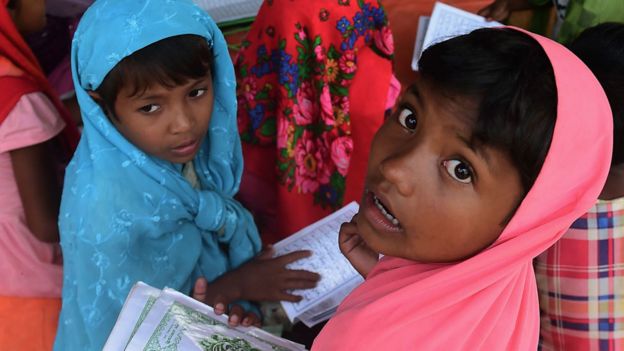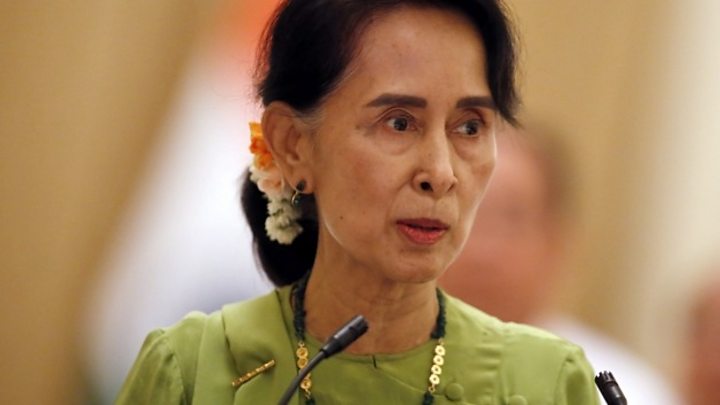Tillerson calls for Myanmar Rohingya crisis probe
BBC
US Secretary of State Rex Tillerson has called for an independent investigation into Myanmar’s Rohingya crisis.
Myanmar’s army has been accused of killing Rohingya people and burning their villages, forcing hundreds of thousands to flee to Bangladesh.
Mr Tillerson said the crisis concerned the US, but added that sanctions against Myanmar were “not advisable” at this time.
His comments came after he met Aung Sang Suu Kyi and Myanmar’s military.
International pressure has been mounting for months on Aung Sang Suu Kyi to condemn the army’s alleged brutality and what the UN described as “textbook example of ethnic cleansing”.
Ms Suu Kyi is the de-facto head of Myanmar’s civilian administration but does not have control over the military.
She is accused of ignoring the plight of the Rohingya, a Muslim minority which is left stateless in majority-Buddhist Myanmar.
- Who are the Rohingya group behind attacks?
- The truth about Rohingya militants
- What you need to know about the crisis
Speaking on Wednesday at a joint press briefing with Ms Suu Kyi, Mr Tillerson said the US was “distressed” by the suffering of the refugees fleeing to Bangladesh.
“Scenes of what occurred are just horrific,” he told reporters, adding that it was the biggest crisis Myanmar faced since the transition from military rule.
About 600,000 Rohingya have fled Myanmar since August this year, after a counter-insurgency operation responding to Rohingya militants attacking police posts and killing members of the security forces.
Mr Tillerson condemned the attack by the Arakan Rohingya Salvation Army (Arsa), calling it an “unprovoked attack” that US had “zero tolerance” for.
 More than half a million Rohingya have fled Myanmar
More than half a million Rohingya have fled Myanmar
The US would continue to support Myanmar’s transition to democracy, he said, adding: “We want to see Myanmar succeed… I have a hard time seeing how [sanctions] helps resolve this crisis.”
He said the US would provide more aid to help both Bangladesh and Myanmar address the humanitarian crisis.
Meanwhile, Ms Suu Kyi defended her record on the issue.
Responding to reporters who asked why she had been silent on the alleged army brutality, Ms Suu Kyi said that her office had released several statements on the situation and she had also spoken out about the crisis.
“I have not been silent… what people mean is what I say is not interesting enough,” she said.

On Tuesday, the Myanmar army released the results of an internal investigation in which it exonerated itself of blame regarding the Rohingya crisis.
It denied killing any Rohingya villagers, setting houses alight, raping women and girls, or looting their homes.
However, the investigation results contradicted evidence seen by BBC correspondents on the ground.
Rohingya people who reached Bangladesh also said that Burmese troops backed by local Buddhist mobs had burned their villages, attacking and killing civilians.
Amnesty International said the army’s report was an attempted “whitewash” and called for UN fact finders to be allowed into the region.
